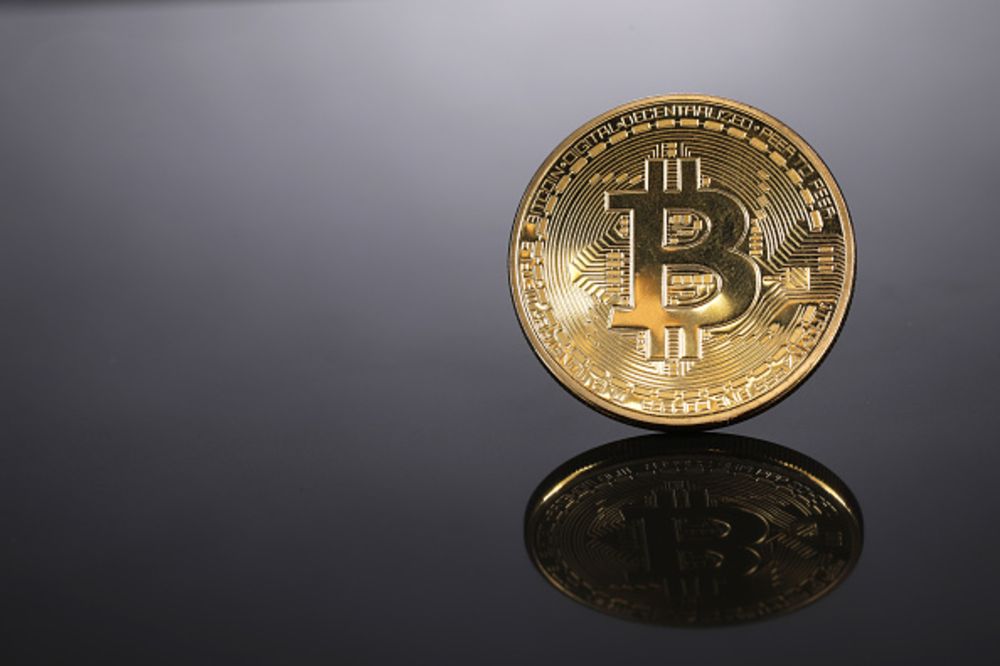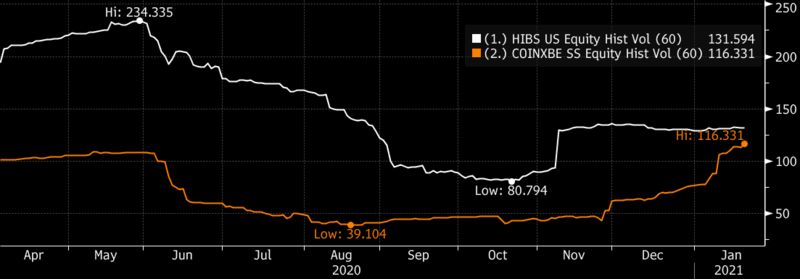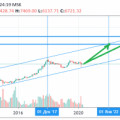The facts show that investors would rather invest in cryptocurrency through an exchange-traded fund.
IfPresident Joe Biden's appointment of Gary Genslerto lead the Securities and Exchange Commission is confirmed, Gensler must act quickly to encourage agency staff to move toward approving a Bitcoin ETF, showing that the U.S. not only understands cryptocurrencies, but is committed to protecting investors and putting the country on a level playing field with the rest of the world. This step is long overdue. It is believed that the SEC is unnecessarily delaying the approval of ETFs focused on cryptocurrencies. An informal Twitter poll I recently conducted showed that nearly 80% of the 2,192 respondents thought the SEC should approve a Bitcoin ETF. About 50% would be invested in one. I've been doing these polls for years and this is the highest approval rate. My survey fits nicely with a bit-by-bit survey of financial advisors. In that survey, 63% of respondents said an ETF was their preferred vehicle for investing in Bitcoin, compared to 16% for directly owning the digital coin and 10% for a mutual fund. People say this not as supporters of cryptocurrency, but as fans and users of a very strong and efficient ETF structure. They would feel the same way if the SEC rejected the gold ETF or the China A-share ETF, which are excellent examples of how ETFs are opening up new opportunities and successfully democratizing a unique asset class. Here are five reasons why the SEC should approve ETFs:
1.The premium in the Grayscale Bitcoin Investment Trust is dangerous: Those looking for a U.S. investment vehicle for the digital currency are typically left with a bunch of over-the-counter trusts that are similar to closed-end funds but without the crucial process of creating or redeeming shares that an ETF offers—a feature that allows for arbitrage. The most popular of these is the Grayscale Bitcoin Investment Trust, which has grown from $2 billion in assets to more than $20 billion in the last year. If Grayscale were an ETF, it would rank roughly 50th in size, putting it in the top 2% of all ETFs. Those who bought shares in the trust last year paid an average premium of about 18% more than the cost of bitcoin - and that's less than in the past. The premium was 132% and only 3% in recent years. With an ETF, investors know that they are getting a price that will be very close to the price of the underlying asset. Of course, the Bitcoin ETF will also likely trade at a premium, but it will be microscopic compared to how Grayscale trades. It will also not be subject to artificial forces that tend to push Grayscale's share price lower even if the price of Bitcoin rises, and vice versa. History shows us that the ETF premium will steadily decrease as more and more professional market makers become involved in the market.
2.They have proven themselves in Europe, with over 20 crypto ETFs already in existence outside the US, mainly in Europe. Exchange-traded notes like the Bitcoin Tracker EUR, introduced in Sweden over five years ago, typically trade at minimal premiums thanks to the arbitrage allowed by the share creation / redemption process. While a Bitcoin ETF in the US would be a much larger trade in terms of volume and assets, it would actually work the same way. While premiums and discounts to net worth are wider than most equity ETFs, they are pretty tough in every way and much tougher than Grayscale and the like. The sharp spike and then the fall in bitcoin prices served as an example of how the US Bitcoin ETF would react to such drastic moves. Looking at the multitude of ETFs and ETNs in Europe, most of them ended on January 11 (after a two-day 17.6% drop in bitcoins) at a 3% to 4% discount to net worth. It is clear that the "arbitration streak" was stretched, but not broken. Those who wanted to leave could. Place this in the US among the largest and best market makers, and I guess the discount would be half that.
3.There are plenty of more volatile ETFs out there: While there is no precedent for an ETF tracking a digital asset, the SEC has approved instruments that are arguably riskier in terms of volatility. There are about 70 ETFs that are more volatile than Bitcoin. For example, an ETF approved and launched less than a year ago, the Direxion Daily S&P 500 High Beta Bear 3X Shares ETF has a 60-day standard deviation of 100% to 200% - depending on the month - while the Swedish Bitcoin ETN ranges from 25% to 100%.
4.It would be obvious what it is: the risks of a Bitcoin ETF are obvious to average investors, as most of them know at least a little about cryptocurrencies as new, alternative and volatile. This suggests that it will be less likely to turn into an unpleasant surprise for uninformed investors, as has happened with some ETFs in the past. One example is the United States oil ETF, which looks like a wolf in sheep's clothing: it has a vanilla name and looks pretty innocent, but it contains futures contracts, and most of them do not understand how high the costs of "execution" of these contracts can be. ...
Second, the broader bitcoin market,which the SEC says is prone to manipulation and fraud, becomes more effective with the involvement of larger organizations. If anything, having ETFs will speed up the process and help further increase transparency and better oversight of cryptocurrency exchanges as they compete to attract professional market makers.
5.Don't worry about remembering your password: one of the reasons investors love ETFs is their convenience. Any individual investor can replicate any ETF - they literally tell you what they hold every day - and keep the expense ratio, but most investors want convenience. As an added bonus, investors don't have to worry about losing their digital wallet passwords; they just need to be able to log into a brokerage account.
translation from here
Free access to US market analytics at elliottwave com
This is why Bitcoin "rejected" the $ 42,000 mark
Crypto Trading Guide: 5 Simple Strategies To Watch Out For New Opportunity
Now the handbook for wave enthusiasts, “The Elliott Wave Principle,” can be found in free access here
And don’t forget to subscribe to my telegram channel and YouTube channel
Free Guide “How to Find High Potential Trading Opportunities Using Moving Averages”
If you find the article interesting, put pluses and add to favorites.





